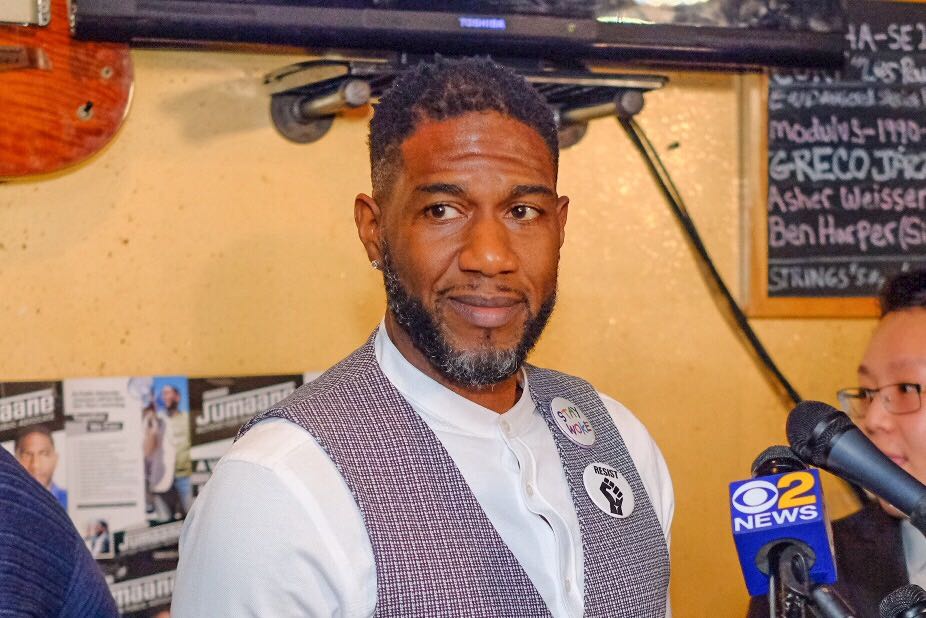Earlier this year, Jumaane Williams had to overcome a field of 16 candidates to become the city’s new public advocate. On Tuesday, he easily bested just two candidates to earn the right to stay in office through 2021.
Williams overtook Republican Councilman Joe Borelli of Staten Island and Libertarian Devin Balkind with relative ease — both at the ballot box and in the final vote of 77.84% in favor of the incumbent.
While Williams, the presumptive winner in a left-leaning city, gathered up to $173,000 in donations, Borelli’s challenge would seem lackluster with only about $16,000 in donations to his campaign.
At Bar Chord in Flatbush, Williams and his supporters celebrated their victory.
“I want to make sure that by the time my tenure is done, no one ever again questions what the public advocate is and if we need that office,” Williams said. “When I was here just eight months ago, I said that if I had started treating my own mental health years ago, I’d be married by now. But since that time I got engaged… But I’m still working because since then it’s been clear around city that we need to re-evaluate the our own mental health.”
Williams won the special election for the position on in February over 16 other candidates with only Councilman Eric Ulrich, another Republican, coming in at second place with 19 percent of the vote at that time.
What Ulrich managed to prove was that the GOP could mount credible challenge against the largely Democratic voter supremacy in the city.
Williams ran on a platform that looked to his roots as a tenant organizer calling for universal rent control and called for criminal justice reforms.
As some in government have called the public advocate’s office a “place-holder” for politicians working on a new gig, Williams campaigned on getting more authority behind the title. Subpoena power, voting rights in City Council and ability to introduce legislation are some of the ways he promised to transform the office.
The public advocate’s race had the opportunity for a boost in voter turnout from early voting, though with the rollout of the program coming during an off election season, little more than 60,110 made it to the polls.
For nine days the Board of Elections had 33 polling sites operating across the city prior to Tuesday’s final countdown, but only 1.14 of registered voters in the five boroughs made it out to cast their ballot.
Early voting gave the BOE the opportunity to test a new program; instead of stacks of printed voter rolls, residents could simply check-in on an iPad for their information to come up at poll sites.





































